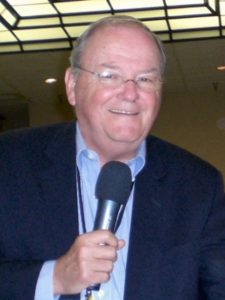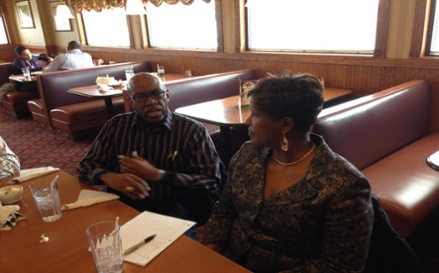Start Here: Part 2 – Exploration to Engagement
In the first part of this two-part blog post, the focus was on discovering who God has brought to your city and what inner motivations has He planted in their hearts. In this second part the focus moves from discovery to engagement.
To solidify what you learned from the interviews, write a report based on what you and your team learned during your discussions with grass-tops leaders. Writing a report that can be shared with others is work that my Research Director and I often do at the request of city leaders. To move from discovery to engagement, you will want to have a professional document that serves as a milestone in your movement.
The people you interviewed will want to know what you learned from your conversations. Many will look to you and your team for guidance about how they might act on the inner motivations and passions they have shared with you.
Here are the final four steps that will take your work from discovery to engagement.
Hold a community report session: Invite those who you’ve interviewed, their families, friends, and other interested parties to a community report session. Have printed copies of the report on hand. Present the findings and offer an opportunity for those present to join a task force around 3-5 of the top identified pressing problems facing your city.
Launch task forces. Be sure to have one or two leaders for each of the top 3-5 identified pressing problems facing your city who are ready to greet those interested in joining a task force on one of the issues. The role of each of these groups is to discover what’s currently being done to address the issue. In the process, each task force may discover gaps in services, duplication of services, best practices that are under-resourced, and opportunities for developing an effective cross-sector collective impact strategy. (Check out our podcast on Axioms for Collaboration)
Become a learning organization. Ask the leaders of each task force to write a report based on their work about what is being learned and what they recommend. We recommend that members of the initial interview team form a steering committee to hear from the task force leaders and guide their next steps. In this way, the developing movement has an opportunity to grow in their understanding of how the ecosystems of the city are addressing critical issues.
Join with others whenever possible. Only launch something new if it is the only way forward. Our witness is best when it is incarnational after the pattern of Christ. We are at our best when we join with others who have a similar passion about a pressing issue in our city. If you do launch something new, be open to others joining with you who may not have a church home or who may not believe what you do. These kinds of friendships matter and become the bridge point for meaningful witness.
When you and your team become known as leaders who listen carefully to others and who are prayerfully looking to understand where God is leading, you will start processes that move the needle in areas critically important to the common good and to the work of God’s kingdom in your city. The process shared in these two posts builds relational equity (social capital) and alignment in a few areas. The experience gained will give you confidence to act when new opportunities for kingdom collaboration arise.


 In 1975 I was considering a position with Young Life in the Pittsburgh area. All potential staff met with
In 1975 I was considering a position with Young Life in the Pittsburgh area. All potential staff met with  Today, I’m from the Twin Cities. I have lived here for 20 years. During that time I have lived in the same house in a second ring southwestern suburb, Eden Prairie. As an adult, my life and my identity have been developed in a far more intentional way through my marriage to Kathy, my choice of vocation, my interaction with my children, my neighbors, my church, and the leaders of the communities I choose to interact with here in the Twin Cities.
Today, I’m from the Twin Cities. I have lived here for 20 years. During that time I have lived in the same house in a second ring southwestern suburb, Eden Prairie. As an adult, my life and my identity have been developed in a far more intentional way through my marriage to Kathy, my choice of vocation, my interaction with my children, my neighbors, my church, and the leaders of the communities I choose to interact with here in the Twin Cities.